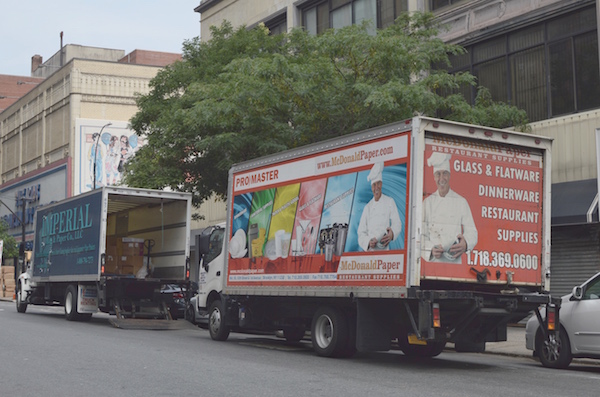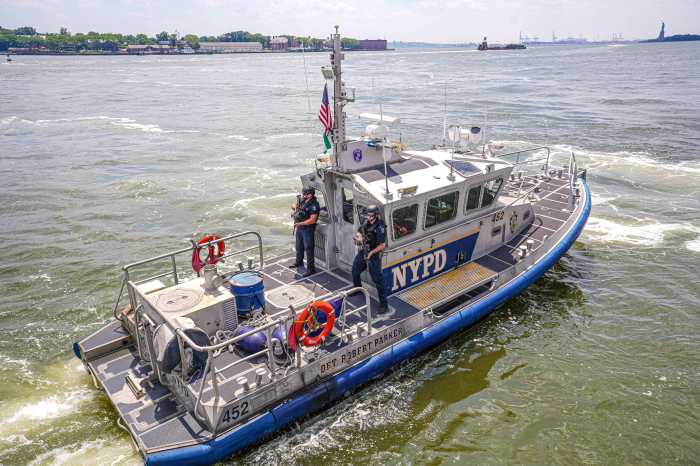
BY JACKSON CHEN | A vigilante air quality activist has been awarded over $3,000 by taking bus companies and their idling drivers to court.
George Pakenham, director of the film “Idle Threat: Man on Emission,” began his journey of environmental advocacy in 2006. Worried about his neighborhood’s air quality, he began approaching strangers who left their cars idling for more than three minutes. In his film, the brave Upper West Sider interacts with many city dwellers, often concluding their conversation by asking them to turn off their engine and leaving them with a business card that states the law and the accompanying penalties.
According to the city’s administrative code, drivers aren’t allowed to let their vehicles idle for longer than three minutes while parking, standing, or stopping. The laws are stricter around schools and limit idling vehicles to one minute. There are exceptions, as legally authorized emergency vehicles and those whose engines are being used for loading, unloading, or processing devices, are exempt, according to city code. Drivers are fined $300 for the first offense, $460 for the second, and $620 for the third and any subsequent offenses, according to the city penalties.
But residents aren’t left to suffer in a smog-filled environment. Proactive people can utilize a mechanism through the city’s Department of Environmental Protection (DEP) called the Citizen’s Air Complaint Form. Residents can fill out the form, sign and notarize an affidavit, and provide photographic and video evidence of an idling truck or bus (to access the form, click here).
Once the form is received by the DEP, the agency will investigate the matter and either issue a summons on the violator or decline to pursue the issue, according to the form. The complaint form adds that if the submission doesn’t result in a DEP summons, the resident who filed the complaint is free to pursue the idling vehicle and their company at their own expense.
For Pakenham, the DEP has refused to pursue several of his submissions, yielding him multiple appearances and judgments in his favor. So far, he’s netted $3,000 from bus companies whose drivers frequently idle, Pakenham said at a May 31 meeting of the Hell’s Kitchen South Coalition held at Metro Baptist Church (410 W. 40th St., btw. Ninth & Dyer Aves.).
But outside of his bus-idling bounty hunting, the clean air advocate has been working alongside the City Council and the DEP to better codify the process.
“This is another great example of civic engagement because he brought this idea to our attention and we ran with it,” said Upper West Side Councilmember Helen Rosenthal of meeting Pakenham.
In turn, Rosenthal introduced a bill, Intro 717, that proposes creating a page on the DEP website where individuals could submit complaints supplemented with evidence. The bill, which looks to offer residents of successful cases 50 percent of the civil penalty amount, most recently had a hearing in Sept. 2016.
However, as the issue developed and Pakenham discovered the Citizen’s Air Complaint Form, Rosenthal said she’d instead focus on crafting her legislation to lay out training for those interested.
“What I would hope is that everyone who was going to do this were trained to do it the way that George [Pakenham] does it,” Rosenthal said.
Rosenthal noted her office often fields calls from residents who are concerned about improving air quality, but just don’t know how to get involved. As for Pakenham, he’s remaining vigilant in his crusade against idling vehicles and is hoping to further the process eventually.
“In the end, I’m fighting the good fight and in this country, if you fight the good fight, you usually win,” Pakenham said.
Learn more about Pakenham’s film and activism at verdantvigilante.com.



































